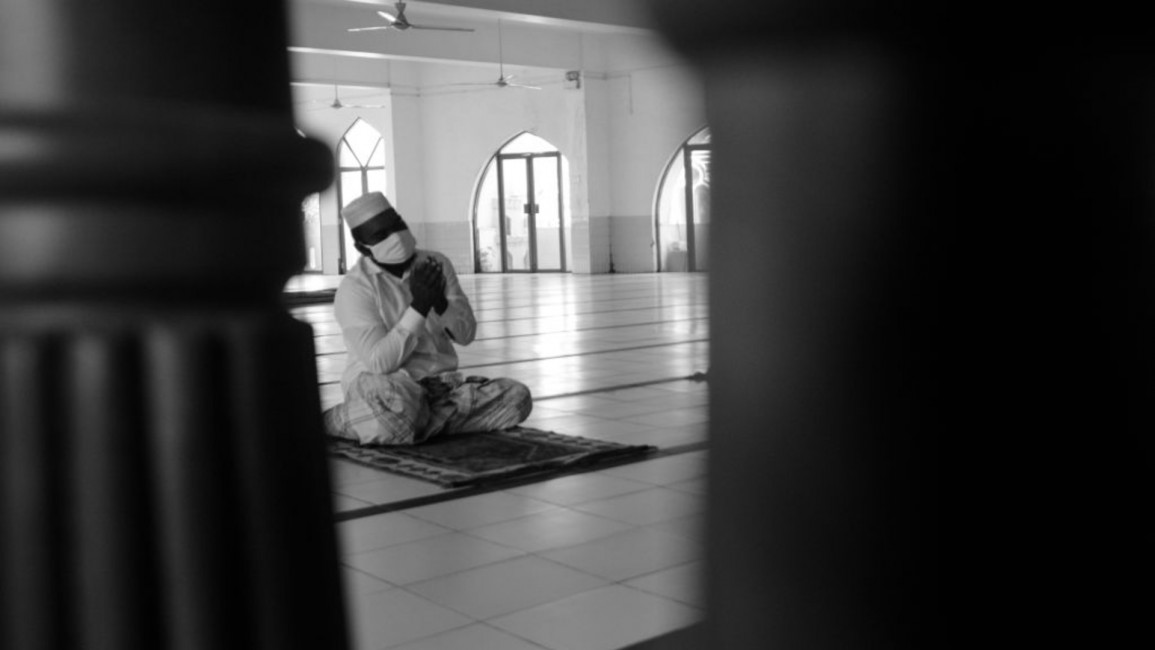
UK must lobby Sri Lanka to end forced cremation of Muslims
Earlier this month, UK Member of Parliament Naz Shah wrote a letter to Prime Minister Boris Johnson urging the British government to take emergency steps to prevent such human rights abuses against Sri Lanka's Muslim minority. Shah highlighted the UK's duty to address the issue, given Sri Lanka is a UK partner and member of the commonwealth.
As a British Sri Lankan Muslim myself, with family in Sri Lanka, I welcome British MP Naz Shah's call on the UK government urging them to protect the country's Muslim minority - a community that has endured intensifying Islamophobia in recent months, and especially since the pandemic outbreak. The UK must now leverage its influence as a Commonwealth ally, to pressure Sri Lanka into ending these forced cremations.
Indeed in the UK, at the start of the pandemic, the British government proposed the Coronavirus bill, which would have allowed designated local authorities to cremate bodies against the wishes of the deceased. Upon an amendment proposed by MP Naz Shah, the government agreed to amend the bill to include that both national and local authorities "must have regard to the desirability of disposing of a dead person's body or other remains - in accordance with the person's wishes, if known, or otherwise in a way that appears consistent with the person's religion or beliefs, if known."
This was a testament to the readiness of the government to consider the dignity of families and those who want to be buried in accordance with their religious beliefs.
 |
The UK must now leverage its influence as a Commonwealth ally, to pressure Sri Lanka into ending these forced cremations |  |
The Sri Lankan government however, has shown a complete disregard for the basic human rights of Muslims in the country, and continues to dismiss their pleas.
Three of the 11 people who have died from Covid-19 in Sri Lanka were Muslim, and were all cremated against their families wishes. Family members were not even allowed to see the faces of their loved ones before they were cremated.
Twitter Post
|
Sri Lanka's Ministry of Health changed their guidelines on Covid-19 related deaths stating that the Standard Operating Procedure (SOP) of the disposing of bodies of those who succumb to coronavirus would exclusively be cremation. For Sri Lanka's Muslim minority - making up 10 per cent of the country's population - this is highly problematic, as Islam prescribes burial as part of the funeral rites, and prohibits cremation.
Heartbreakingly, Muslims in the country are left helpless by a policy that is not only a clear violation of human rights, but also a testament to the level of anti-Muslim sentiment in the country. But Sri Lankan authorities have shown complete disregard for the religious obligations of Muslims, and continue to implement a firm stance on cremations.
Read more: Ignoring Islamophobia in Sri Lanka is harming an already vulnerable community
According to the World Health Organization (WHO), there is no evidence to date of infections from exposure to the bodies of people who died from Covid-19. And while preventative measures are clearly necessary to prevent the spread of Covid-19, such as social distancing, staying at home and following government guidelines, there is no valid reason to overlook the human rights of minority groups.
In fact, the evidence behind the government's treatment of Muslims points to a more sinister motive. Anti-Muslim hatred has been stirring both in and out of government, and many Muslims perceive the cremations policy as a way of further punishing them, as the climate of Islamophobia intensifies.
The International Covenant on Civil and Political Rights (ICCPR) which Sri Lanka has signed, requires that restrictions on human rights in the name of a public health emergency meet requirements of legality. But how is depriving a religious minority of their religious obligations, legal?
Human Rights Watch has stressed the need for human dignity, and while it's clear this is an unprecedented pandemic, there is no reason the Muslims of Sri Lanka should have their dignity compromised.
 |
The Sri Lankan government however, has shown a complete disregard for the basic human rights of Muslims in the country |  |
The Sri Lankan government must adopt changes in their legislation to ensure that Muslim minorities do not have to experience additional trauma of cremating their loved ones against their religious beliefs. My own family members are concerned about the rapid spread of the virus, and are extremely worried that if anything were to happen to them they would have to be cremated against their will.
Governments in the West must speak up against this injustice. As the Coronavirus has made very clear - that which affects one person, can affect us all.
President Gotabaya Rajapaksa must consider the calls to action from Muslim leaders, community members and Sri Lanka's Commonweath allies, and ensure that our rights are being fulfilled, or face be held accountable for violating the basic human rights of his citizens.
Tasnim Nazeer is an award-winning journalist, author, and Universal Peace Federation Ambassador. She has written for Al Jazeera, The Guardian, The Huffington Post, Middle East Eye, CNN, BBC, and others. She was awarded the FIPP the global network of media Rising Stars in Media Award 2018.
Follow her on twitter: @tasnimnazeer1
Opinions expressed in this article remain those of the author and do not necessarily represent those of The New Arab, its editorial board or staff.




